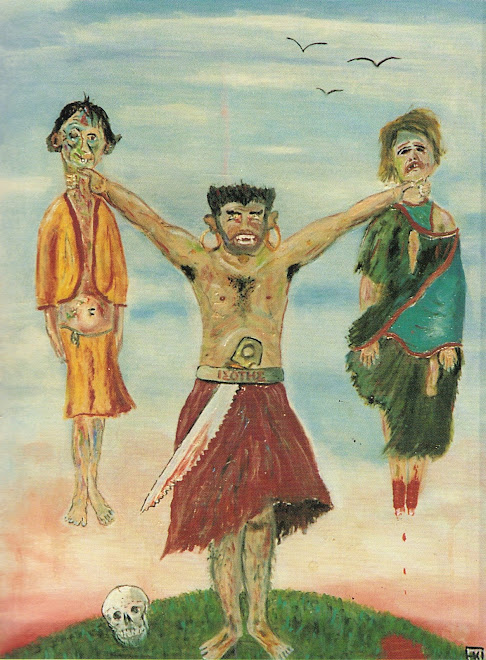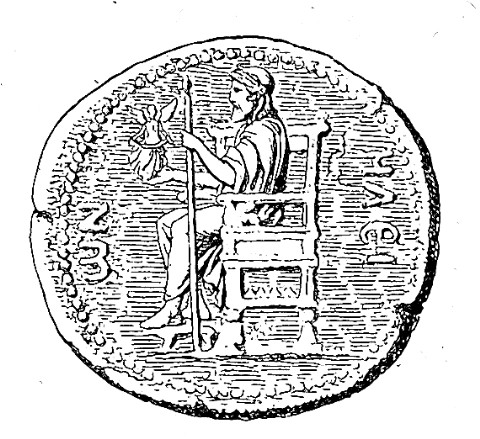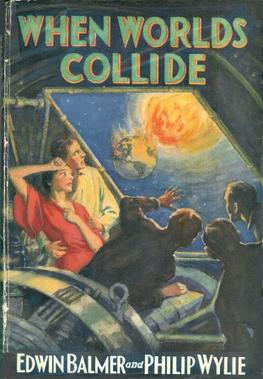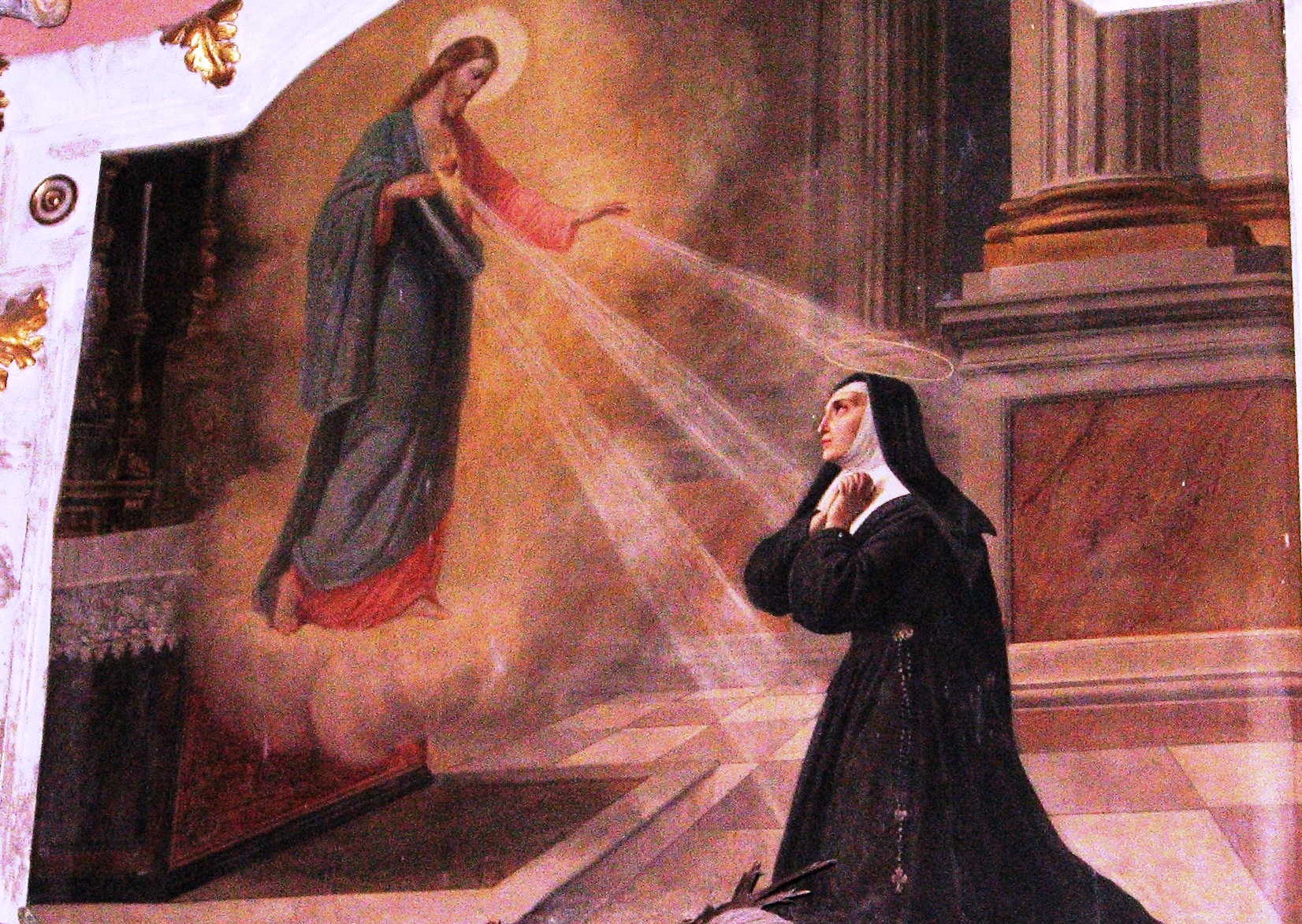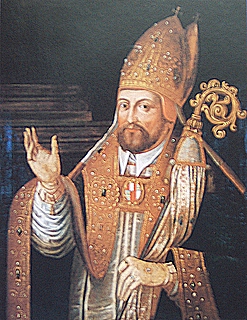 Guest post
Guest postI will make this note - if Christianity does not assist in preventing the rise of the Sudra class to global dominance (ie., the dominance of the outcasts and the degenerates, whether "elite" or not), and the mitigation of bourgeois values with transcendental power at the same time, then they deserve what is coming. One way to do this is to "re-mystify" the Faith. See the following....(they could do this instead of engaging in so much "
positive thinking")....
"We have reached the end of our research into the document found in the Ante Nicene Father collection, known as the Clement Journal. It is impossible to sum up so many posts in detail, but one thing is clear – the early Christian religion, as given by Peter to Clement in a traditional kind of initiation, resembles more a “mystery” faith or an esoteric philosophy than it does a Sunday School lesson. The ending of the Journal, which includes several letters of Clement and James the Just concerning the episcopacy of Peter being passed to Clement, is even more explicit.
Peter gives the reasoning for having secret doctrine openly & clearly:
Knowing, my brother, your eager desire after that which is for the advantage of us all, I beg and beseech you not to communicate to any one of the Goyim the scrolls of my preachings which I sent to you, nor to any one of our own tribe before trial; but if any one has been proved and found worthy, then to commit them to him, after the manner in which Moshe delivered His scrolls to the Seventy who succeeded to his throne…
All it takes for Peter to argue this is common sense, although even the Scripture teaches that not one “jot” or “tittle” should pass from Torah, either, reinforcing natural law:
give the scrolls of my preachings to our brethren,with the like mystery of initiation, that they may indoctrinate those who wish to take part in teaching; for if it be not so done, our word of truth will be rent into many opinions…
James the Just approves this, and gives orders to make it so:
And these are not all to be committed to him at once; that, if he be found injudicious in the first, the others may not be entrusted to him. Wherefore let him be proved not less than six years. And then according to the initiation of Moshe, he that is to deliver the scrolls should bring him to a river or a fountain, which is living water, where the new birth of the zaddikim takes place…
Furthermore, an oath was to be taken in the name of the elements to keep the scrolls sacred, even from one’s own posterity and friends (if found unworthy, after a 6 year trial, to have them), and they were to be returned to the bishop at their death. They were to be returned also in case of finding “another way”, on pain of the universe being hostile, the ether angry, and Elohim displeased enough to send one to “endless punishment”. This was so that those who truly seek Truth might not have to be seduced or turned aside by false teachers (who are warned against in the Bible constantly). Even in the apostle’s lifetimes they existed; how much more, after death?
To me, therefore, keeping this covenant, there shall be a part with the devoted ones; but to me doing anything contrary to what I have covenanted, may the universe be hostile to me, and the all-pervading ether, and the Elohim who is over all, to whom none is superior, than whom none is greater…
Clement writes back that the Messiah was sent to the darkest part of the world, called “the West”. This is an interesting way of looking at things…the West is the place of Water and Chaos, but also, the “first comings” of “new birth” and Baptism, as well. Thus, the best and the worst, if looked at from point of view of Advent. In Old Europe, the ether had begun to be cleaned and cleared so that elemental powers now served holy means. This was the inner secret of Old Europe’s existence.
As in the fashion of other mysteries, Peter annoints Clement on his deathbed (although Clement declines it, which makes Peter more determined; Peter cites Clement as “the best man he knows”):
I lay hands upon this Clement as your Mebakker (bishop); and to him I entrust my throne of discourse, even to him who has journeyed with me from the beginning to the end, and thus has heard all my discourses who, in a word, having had a share in all my trials, has been found steadfast in the faith; whom I have found,above all others, obedient, philanthropic, pure, learned, chaste, good,upright, large-hearted, and striving generously to bear the ingratitude of some of the talmidim. Wherefore I communicate to him the power of binding and loosing, so that with respect to everything which he shall decree in the earth, it shall be decreed in the skies. For he shall bind what ought to be bound, and loose what ought to be loosed, as knowing the role of the kahal. Therefore hear him, as knowing that he who grieves the Nagid of the truth sins against Moshiach and offends YHWH the Father of all. Wherefore he shall not live; and therefore it becomes him who presides to hold the place of a physician, and not to cherish the rage of an irrational beast
Peter urged Clement (by Clement’s relation) that it was sin not for him to accept, and that although it is dangerous (for the Evil One has sworn a war to be waged on the bride of Jesus), he ought to serve “this good King”. “Monarchy” is a phrase even James the Just uses to describe the Torah and God’s reign, and there is room for more thought here. Ought not the earth to be governed by a King, as heaven is? And who better to stand in the “way” of the Evil One, till the time when the Adversary shall, in the name of destroying all idols, destroy that King and himself take the name, not of the servant-King, but of God Himself (see Thessalonians)?
But you shall bind what ought to be bound, and loose what ought to be loosed…
Somewhat contrary to Cromwell’s sarcophagic inscription, Bishops and Kings are the path of the secret Christian mystery. The bishop is to present the local assembly as a miniature Bride. If he fails through negligence, he will suffer “loss”. An interesting insight is given on adultery – it is the second worst sin, the foremost being those who (though chaste) are still mislead into Heresy.
Wherefore love all your brethren with sober and compassionate eyes, performing to orphans the part of parents, to widows that of husbands, affording them sustenance with all kindliness, arranging marriages for those who are in their prime,and for those who are without a profession, the means of necessary support through employment; giving work to the capable, and alms to the incapable…
The bishop’s helpers are to ascertain who is “about to sin” and this will allow the Bishop to check them, for the Assembly, without his words, will soon fall prey to the anxieties of this world and become as “tinder” for the fire of passions. Only the bishop is strong enough to stand firm, or to stand at all, alone, and that is because he is not alone. The Church is likened to a ship trying to reach harbor (pirates are hypocrites, whirlpools are sins, wild places are unbelievers, etc.)
But prayers become audible by good deeds….
So much for Luther. As this Orthodox post points out, St. Paul doesn’t contradict James, he goes further than James does, in speaking of faith and works. Love is greater (and more necessary) than either faith OR works (although they, too, are necessary).
Concluding thoughts: Luther did have a valid spiritual experience of some sort. However, the experience itself and its subsequent interpretation are not the same thing. Luther represented a tremendous will to exteriorize the Christian message – of course, this is salutary in some respects, but it is mingled with such a high degree of error, lies, and illusions (such as Sola Scriptura as commonly understood) that it renders the teaching dangerous (because one must bear in mind to whom one teaches, as well as the source of the teaching, and not just the external trappings, whether in robes or between the covers of a Bible). Luther brought immense comfort to many people, however, at a terrible price. In this sense, he is like General Pyrhhus. On the contrary, the early Fathers did not think like Reformers – they were preserving what they could of the ancient world that was handed to them, with the exception of demonic taints (at least in their perception). They “spoiled the Egyptians”, as Augustine recommended. They were adding to the classical balance of Good to achieve what was Full, or Perfect. In addition, they followed the same type of practices (probations, trials, apprenticeship, oral/secret Tradition, etc.) followed by Druids, mystery schools, etc. Their concern was not to rationalize every Tom, Dick and Harry into heaven through a work ethic, but to actually bring down divine energies through an earthly hierarchy that depended upon “the One” (locally, this was the Bishop). So, Christianity was Divine Distributism and Local Anarchy (in one sense), but also Monarchy and Imperium in another. Modern Christianity may well turn out to have the worst of both sides, because even Protestant and Anglo societies covertly appeal to authority and Tradition, in this case, their own, as draped in delusion. One day, this will be used against them. This may very well occur in conjunction with the rise of the Sudra class to global dominance, if such goes unchecked.
The Christian faith will have a tremendous karmic burden to prevent or mitigate this."
This entry was posted in
Christianity,
Tradition and tagged
Clement,
Initiation,
James the Just,
Peter by
Logres.
Bookmark the permalink.






